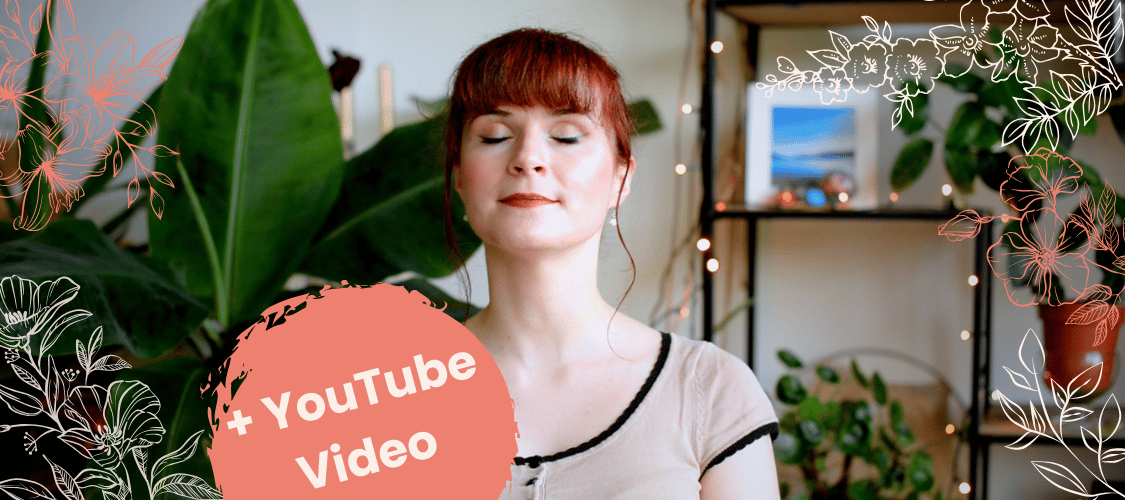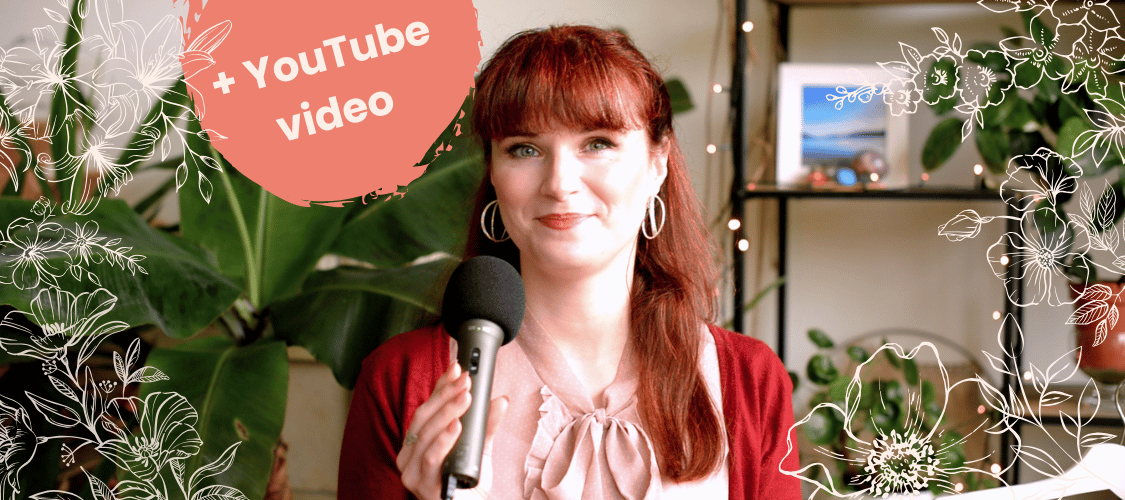A breakup feels like an internal fight of many forces at the same time. The emotional overwhelm at this time is normal as well as doubt, sense of hopelessness and actual grief. Let’s understand our emotions and get closer to understanding how to regulate your emotions after a breakup.
Watch the Featured Video – How to Regulate Your Emotions After a Breakup
Say Goodbye to a Part of Yourself
If you’ve clicked on this video, I assume you’ve recently experienced a breakup or another significant event that has triggered overwhelming emotions.
I’m glad you found this video because breakups can be emotionally exhausting. My aim is to help you alleviate some of these heavy feelings that inundate you right now and perhaps even make sense of them.
A breakup is not merely parting ways with someone who was significant to you; it’s akin to the death of a part of yourself that existed while you were with them. This part of you developed certain mechanisms, habits, and behaviours, felt joy and sometimes anxiety. Part that your brain was familiar with for so long that will now fight for to bring it back because it likes familiar things. Brain doesn’t like change, especially a drastic one because it interprets it as losing the sense of predictability. Now in a new situation your rational mind is lost and panics a little. Well, a lot actually.

Don’t Trust Your Brain 100% Now
Your brain’s primary function is to keep you alive and safe. Happy moments are not seen as threats to survival, so the brain tends to ignore them. Instead, it focuses on potential threats, which is why negative “what if” scenarios often dominate our thoughts. The brain might trick you by highlighting only the happy moments of your past relationship to lure you back to a state of perceived happiness. Even if it involved trauma bonding, anxiety, or codependency, the brain prefers the familiar because it knows how to navigate it.
This is why I advise anyone wanting their ex back to take a step back, process their emotions, and revisit the idea after some time. This way, you can discern whether the desire is rooted in anxious attachment or genuine intuition.
So for a while, you cannot trust your brain 100% of the time. Emotions are energy in motion, so everything you feel right now is surfacing for you to acknowledge and process with love. However, we mustn’t treat these emotions as facts or assign them undue significance.
Be Kind to Yourself
The most important thing is to give yourself grace, treat yourself with kindness, and adopt a non-judgmental attitude, as if everything you are experiencing right now is exactly as it should be. Do not blame yourself or your ex for anything: it was not your fault. It was not your fault. It was NOT your fault.
Understand that we all do what we think is best in any given moment with the information we have at the time. With this perspective, forgive yourself for past mistakes. Better yet, don’t see them as errors, because without condemnation, there’s no need for forgiveness.
Instead of trying to numb the pain, go right through it. It seems like a more difficult path to choose, but while it might be hard now, the other option is to deal with it later. That will also be hard, if not even harder. So choose your hard.
And I know that many of us try to numb pain with alcohol, substances, or casual encounters. If these truly serve you, I won’t tell you to stop. However, these mechanisms often further shame and condemn ourselves. How do you feel about yourself after you’ve done these is the question. What we should be doing is the reverse. Make yourself feel good daily. Ask yourself each day: what can I do to make myself feel better? Spoil yourself a little, within your means. These can be small, simple pleasures. Coffee to go? A nap? Wearing a nice dress and makeup? Spraying yourself with perfume? Whatever comes to mind, do it. And then ask again: what can I do to make myself feel better? And do it consistently, treating yourself with the love and care you deserve.
Move your body, even if it means going for a walk with tears streaming down your cheeks. That’s okay. I’ve been there. Put on sunglasses if you want.
No shame, no judgement, total acceptance. No matter what comes up next, you can handle it because you’ve got this.
Prioritise Your Nervous System
Sometimes all we need is to inform our nervous system that we’re safe. That even though there appears to be some tension, we’ve got this and it doesn’t threaten our lives. Even though there is doubt creeping in, we’re handling it. Even though there is overwhelming sadness, it too shall pass. You can achieve that with deep breathing into your abdomen, focusing on the present moment without judging your thoughts and emotions, simply observing them. Exercise, visualisation, and other grounding techniques also help. Always aim to relax your body to signal to your nervous system that you’re safe. And that you’re going to be okay.
Now, you take all the time you need to process your emotions. Each spiral of negativity you go through is part of the process. Give yourself grace, knowing that everything you feel right now is appearing exactly as it should. It may come in stages or seem as if all the stages have been shuffled, making the navigation complex.
You may feel good one day and dreadful the next. This doesn’t diminish your progress. It’s all okay and normal.
The Inner Battle of Two Selves
Imagine it as an inner battle between two parts of yourself, both dwelling within you, each necessary and deserving of your love.
One part is old, with you since your childhood, shaped by conditioning at home, school, and your beliefs about yourself: what you are like, what you can and cannot do. This part of you works hard for a good life, seeks love and fulfilment, found this relationship, and was happy in it for a while. Unaware that maybe this part of you contributed to feeling too attached, codependent, and too scared to communicate your feelings. This part has held your hand throughout the years, serving you in the best way possible at that time.
The other part is more evolved: hopeful, inspired, positive, and not searching for love but embodying it. This part sees beyond the suffering and knows this is your opportunity for expansion, getting to know yourself better, discovering what you want in life. This part of you knows that you are love and fulfilment and that you don’t have to seek it externally because it’s already within. Each of these experiences is a manifestation to teach us more about who we are.
This big battle of these two selves within you right now is why it feels so chaotic and overwhelming. It explains why we can experience two polar opposite feelings and thoughts on the same day.
And because love always wins, it can stir the waters a little sometimes, causing turmoil in our lives and making us question our paths. It may feel like a bulldozer has come in and destroyed everything, leaving nothing behind. That’s how a breakup feels, especially in the initial weeks.
But when the dust settles and you start to adapt to this new life, new routines, a new you, new desires will emerge. New ideas will surface. Suddenly, you realise your life is now a blank canvas, and you can rebuild yourself from the beginning again.
Journal Your Emotions After a Breakup
Before this can happen, I will give you some tools to process the situation. It’s likely you’ll become emotional, so set some time afterwards to rest, perhaps take a nap, as deep emotions can be exhausting.
Bring your journal and write freely using these prompts. You can structure it like a letter to your ex that you never send—it’s just for you.
Before you start writing, close your eyes for a moment and breathe deeply, following how air travels through your body. Do not judge if thoughts and emotions appear; just acknowledge them and let them go. Spend a few minutes in silence, and when you’re ready and connected to your awareness, start writing freely. Don’t rush, but give it a good thought and feeling.
After journaling, I like to do 15-20 minutes of vipassana meditation, which often turns into a nap, because as I said, processing deep emotions can be very tiring.
Recommended next post to read:
HOW TO GIVE YOURSELF PRINCESS TREATMENT
HOW TO FILL YOUR SELF LOVE TANK
5 TIPS HOW TO STOP OVER-INVESTING IN A RELATIONSHIP










